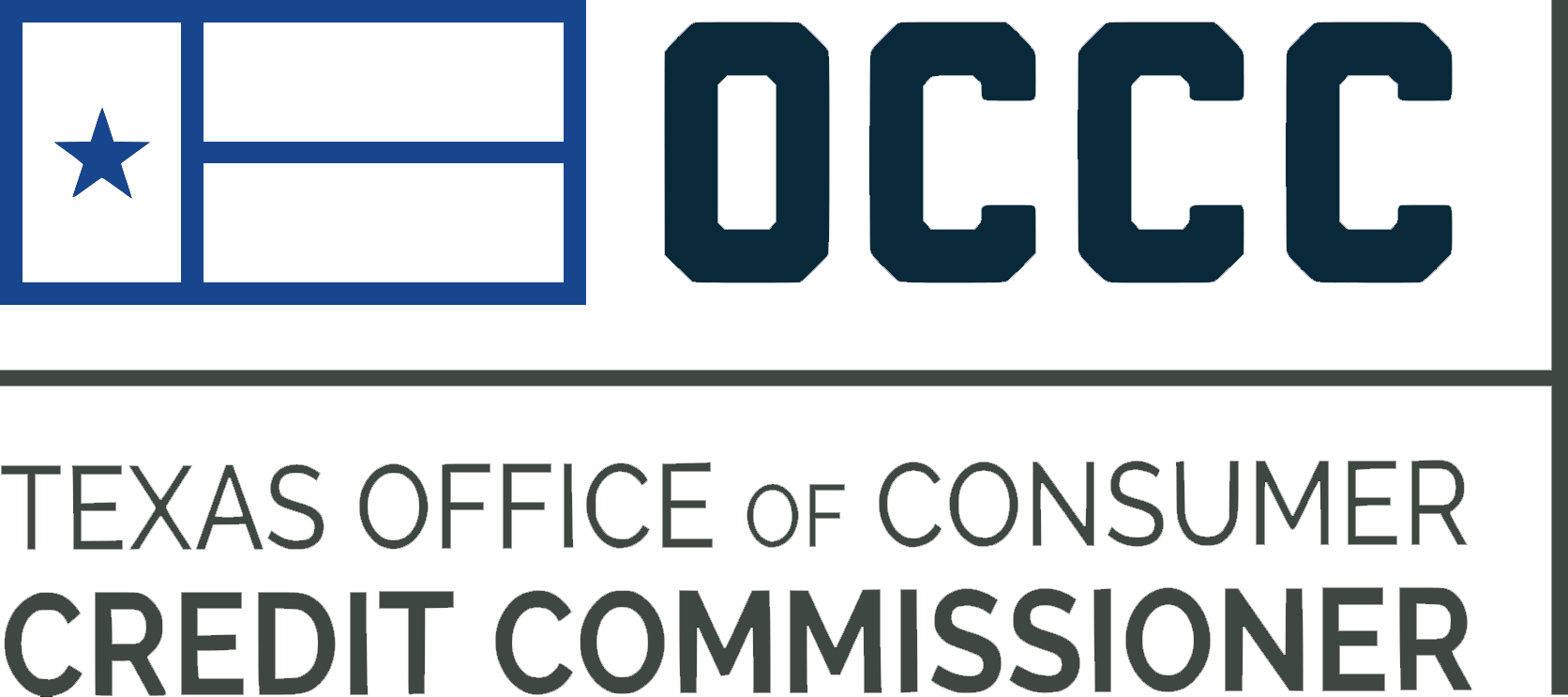Required for Pawnshops – Pawnshops are required to maintain a consumer education display for each location in an area easily accessible by customers. OCCC (Office of Consumer Credit Commissioner) examiners check each location for the display kit to ensure it is filled with OCCC brochures and agency cards.
If you prefer to print your own consumer brochures, click here.
Ordering information
Cost– $25 (kits will not be mailed prior to payment being received by OCCC). You can also print your own brochures using the link above.
Payment Types:
- Use the Brochure Order Form to request an order by email and pay through ALECS. (ordering instructions) If you would like to mail in a check or money order please fill out and print the Brochure Order Form and mail to: Attn: Financial Education Coordinator, 2601 N. Lamar Blvd., Austin, TX 78705.
To place an order, please email the completed form to financial_education@occc.texas.gov.
Relevant statute
Following is the section of the Texas Pawnshop Act addressing the display kit requirement:
§371.183. CONSUMER INFORMATION. The Finance Commission of Texas by rule may require a pawnshop to display, in an area in the pawnshop accessible to a consumer, materials provided by the commissioner that are designed to:
(1) inform a consumer of the duties, rights, and responsibilities of parties to a transaction regulated by the commissioner; and
(2) inform and assist a robbery, burglary, or theft victim.
Important Dates
June 01-Renewal Opens for Pawn Shop & Pawn Employees.
June 30-Renewal Closes For Pawn Shop & Pawn Employees
****Pawn Shop Licenses not renewed by midnight will Cancel***
****Pawn Employees who do not renew their license by midnight must reapply***
July 1-Pawn Shop reinstatement* period opens
Pawn shop licenses not renewed by June 30 have 180 days after the cancellation date at midnight to reinstate* their cancelled license(s). Pawn Shop licenses not reinstated not later than the 180th day after its expiration date (June 30) will Cancel-Non Renewable and you will need to reapply..
*Reinstate – $1,000 late filing fee + the renewal fee for each license you are reinstating.
Pawn Shops may only opt in/out to license their Pawn Employees through the OCCC during the renewal period. If this was missed, a pawn shop will not be able to modify this option until the following renewal period.
Annual Reports
Annual Report – due July 31.
